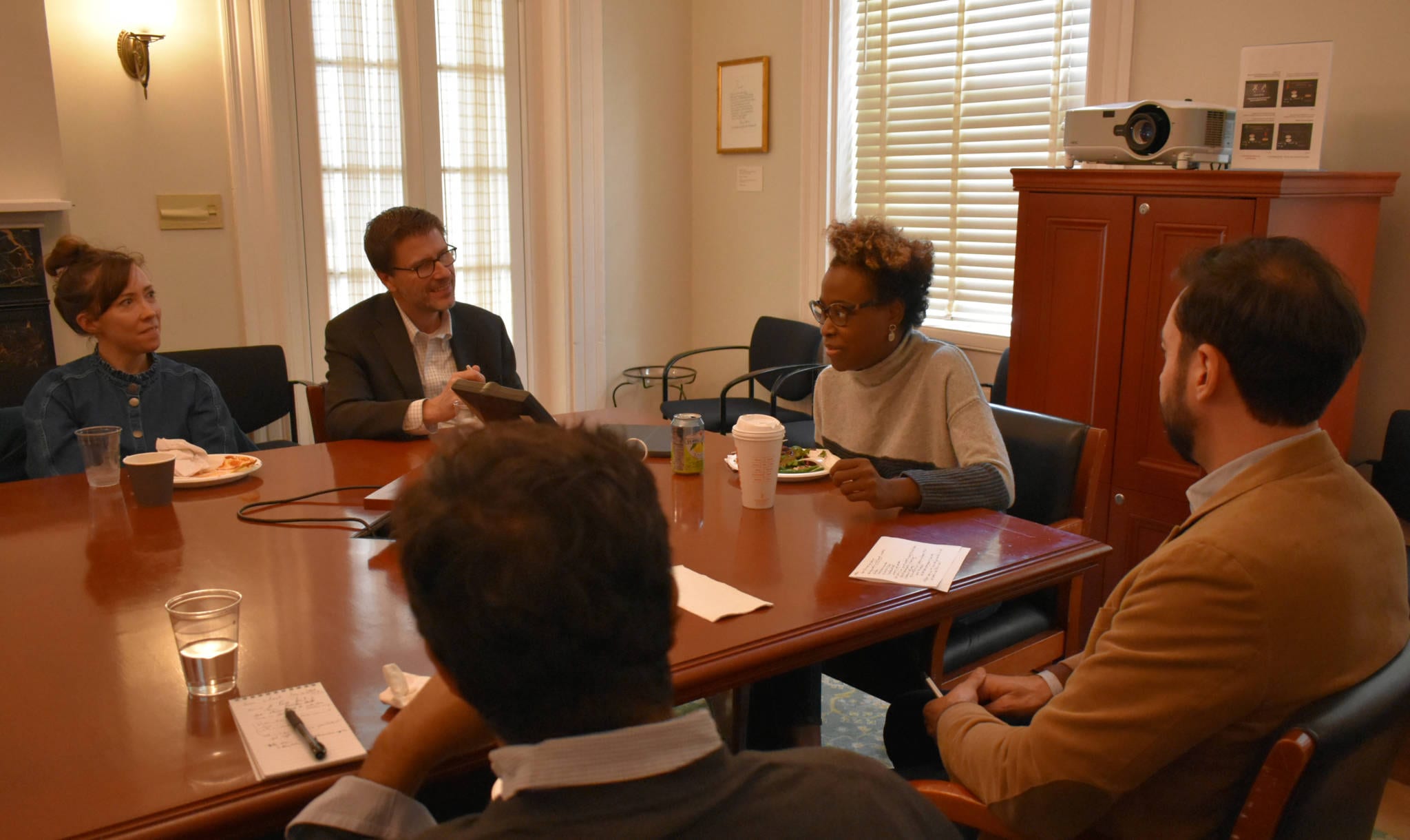Visiting Ferris Professor of Journalism Errin Haines Whack discussed “The Role of Race in the 2020 Elections” at an lively lunch on Thursday, October 17. Discussant Ali Valenzuela, Assistant Professor of Politics, facilitated the conversation, hosted by the Program in Journalism.
In attendance were faculty and administrators from the Program in Journalism and departments across the University. The robust discussion included Eric Gregory, chair of the Humanities Council and Professor of Religion; Kevin M. Kruse, Professor of History; and Daniel Day, a director from the Office of the Vice President for Communications and Public Affairs.
“2020 will bring the most consequential presidential election of our age, largely due to the racial climate that has been brewing in the United States,” Whack said. She added that racism will be on the ballot.
“There is no racial progress in this country without racial backlash. That is the history of America,” she argued. “If you know that, you cannot be surprised that this is where we are.”
Whack’s thinking about race in politics began long ago, when she was covering the 2008 presidential election for the Associated Press in Atlanta, she explained. Focusing on members of the black middle class and survivors of Jim Crow, she felt moved by seeing some of these people vote for the first time.
Whack described the outcome of the 2016 presidential election as influenced by racism. She clarified that not all of Donald Trump’s supporters were racist, but that his messaging contained a racist strain to which many people responded in a concerning way.
“As an industry, journalism is improving at monitoring the role of race,” Whack said.
“What I try to do, especially inside the newsroom, is really to talk to people about the tenets of journalism that should exist regardless of race,” Whack noted. She stressed that adults must pass along the truest picture of the world to their children. “We are trying to present the most accurate report we can provide about our current moment.”
According to Whack, the Democratic Party used to court black voters for output, wrongly expecting them to support the party regardless of what they would gain from doing so. Voting seemed like a choice for white people, but a burden or responsibility for black people. She called for the party to instead seek black voters for input, by asking them earlier in the process what they need.
Compared to previous elections, 2020 campaigns feature much more participation by black women. While black women have often contributed to democracy before, they now are ensuring that people know they cannot save the Democratic Party at the last minute.
“If you do not involve us from the beginning, do not expect us to help you when the time comes,” Whack said.
She warned that polls, especially on the national level, do not necessarily reflect the truth. In agreement, Valenzuela said that after January, voter preferences will have shuffled significantly.
Although writers on race regularly consult academics for evidence, political journalists do not normally interact with academics, Whack observed. She urged greater collaboration in order to boost people’s understanding of race in politics.













